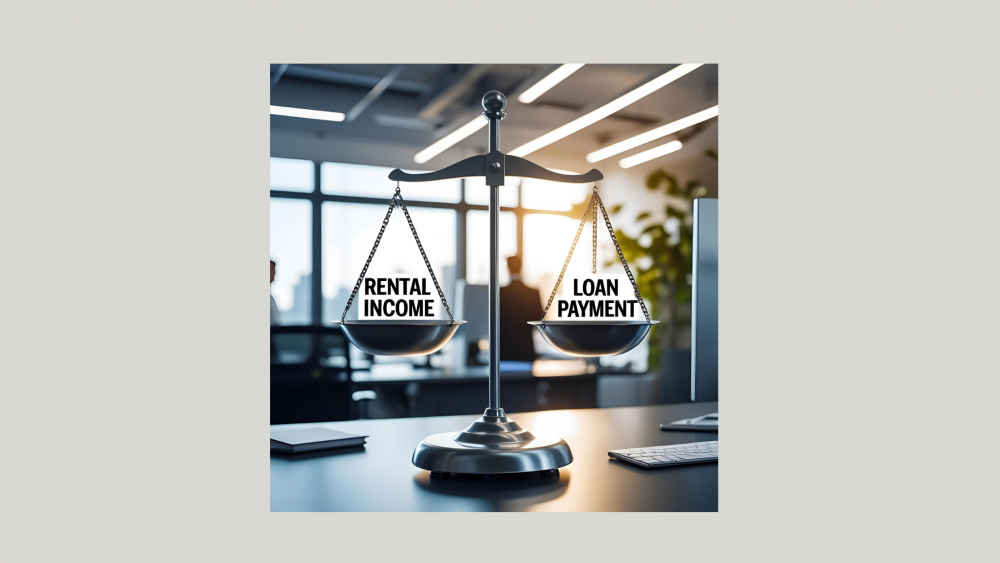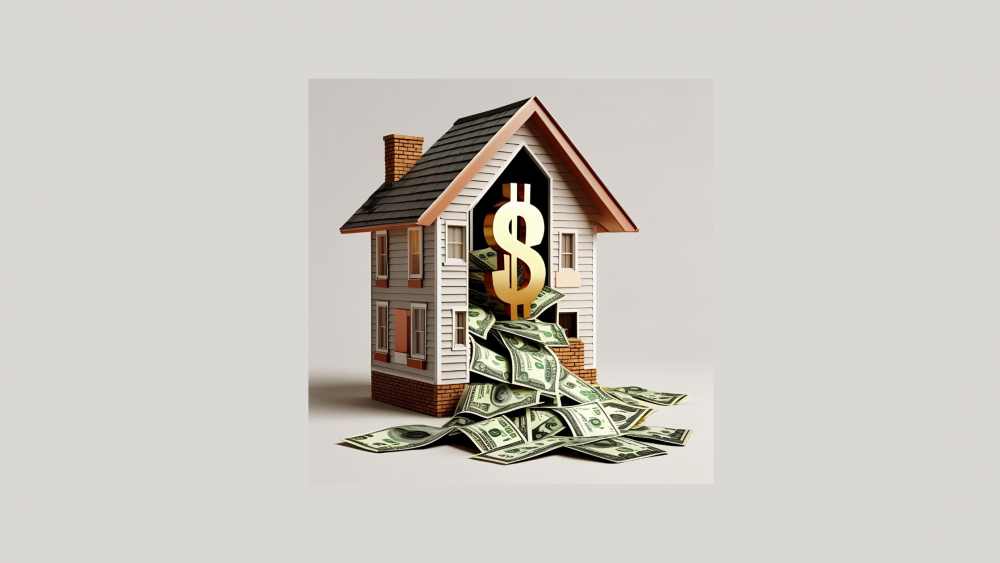Explore financing strategies that investors love — Spotlight on DSCR loans!
Getting into real estate investing is exciting—but navigating how to finance your first (or next) deal? That’s where many people stall out. The good news? You’ve got more options than you think.
In this post, we’re breaking down the DSCR loan—a powerful tool for rental investors—and also highlighting other popular loan types like conventional, FHA 203(k), hard money, private lending, and cash-out refinancing. Whether you're just starting out or scaling up, understanding your financing options is key to making smart investment moves.
What Is a DSCR Loan?

DSCR stands for Debt Service Coverage Ratio—a fancy way of saying: does the rental income from the property cover the mortgage, taxes, and insurance?
Rather than verifying your income with W-2s or tax returns, DSCR lenders qualify you based on the property’s income. If the rental income covers the monthly expenses, you may qualify—even if you’re self-employed or already own other properties.
Example: If a property brings in $4,000/month in rent and your total monthly debt service is $3,200, your DSCR is 1.25. Most lenders want to see at least 1.0, but 1.2–1.25+ is even better.
Why DSCR Loans Are a Favorite Among Investors
Imagine being able to buy a property without showing a single pay stub. No W-2s. No tax returns. Just a property that can bring in solid rent—and boom—you’re approved. That’s the beauty of a DSCR loan.
DSCR loans flip the traditional script by focusing on the income the property generates, not your personal finances. If your investment property earns enough to cover the mortgage, taxes, and insurance, you’re in the game.
This is especially helpful for:
- 🧾 Self-employed investors (aka, the folks with creative CPAs)
- 🏘️ Multi-property owners whose income is already spread thin across several rentals
- 🕒 Time-conscious buyers who need faster closings without the paperwork drag
Conventional Loans

If DSCR loans are the cool, non-traditional cousin, conventional loans are the buttoned-up sibling who follows all the rules—but offers great benefits for those who qualify.
Conventional loans are backed by Fannie Mae and Freddie Mac, which means they come with competitive interest rates and long-term stability. But unlike DSCRs, they’ll want to see your income, debt-to-income ratio, employment history, and credit score.
These loans are a strong fit for investors with:
- Strong W-2 income
- A clean credit history
- Plans to hold onto the property long-term
Bonus: You can still use them for rental properties (up to 4 units), as long as you meet the qualifications.
FHA 203(k) Loans

Ever watch HGTV and think, “I could totally do that…”? An FHA 203(k) loan might be your real-life gateway to renovation dreams.
This loan lets you buy a fixer-upper and finance the repairs—all in one mortgage. There’s just one catch: you must live in the home for at least a year. But savvy investors use this to their advantage with a strategy called house hacking—live in one unit, rent out the others, build equity while covering your mortgage.
With just 3.5% down, it’s an accessible option for first-time buyers who want to combine sweat equity with smart investing.
Hard Money Loans
When time is of the essence, and traditional lenders are dragging their feet, hard money lenders swoop in like the superheroes of real estate funding—albeit ones who charge higher interest.
These loans are asset-based, meaning they care more about the property than your personal finances. Perfect for flips or BRRRR projects (Buy, Rehab, Rent, Refinance, Repeat), hard money loans can close fast—sometimes in as little as 3 to 5 days.
You’ll pay a premium in rates and fees, but for investors who need speed and flexibility, it’s often worth it.
Private Money Loans

Private money is like the secret handshake of real estate investing. It’s funding from friends, family, or individual investors who believe in your deal—and maybe you too.
Unlike institutional lenders, private lenders don’t have rigid underwriting guidelines. You negotiate the terms directly. It’s all about relationships, trust, and opportunity.
These loans are especially helpful if:
- You have a great deal but need fast funding
- Your credit isn’t perfect
- You want creative structuring for a unique deal
Just remember: mixing business and personal can be tricky. Make sure everything is in writing.
Cash-Out Refinance

Already own a property that’s gained value? A cash-out refinance lets you tap into that equity and use it to fuel your next investment.
This works by replacing your existing mortgage with a new, larger one—and you pocket the difference in cash. That money can then be used for:
- Purchasing another rental property
- Funding renovations
- Consolidating debt or increasing reserves
It’s a favorite move among experienced investors who want to scale without using new capital out of pocket. Just be mindful of closing costs and the new monthly payment.
The Takeaway: Build Smart. Finance Smarter.

At the end of the day, real estate investing is about making your money work for you—and the right financing can be the key that unlocks serious growth. Whether you're drawn to the ease of a DSCR loan, the sweat equity potential of a 203(k), or the speed of a hard money deal, the bottom line is this: your strategy should fit your goals, your timeline, and your tolerance for risk.
There’s no one-size-fits-all solution. But with knowledge (and the right team in your corner), you can confidently leverage the right loan product to turn potential into profit.
If you’re ready to explore options, reevaluate an underperforming property, or just run the numbers on your next move—I’m here to help.
Let’s grow your real estate portfolio with intention and strategy.
Sources:
- Alcova Mortgage – DSCR Loans: Unlocking Real Estate
- Griffin Funding – What Is a DSCR Loan?
- Newsilver – DSCR Loan vs. Conventional Loan
- Sammamish Mortgage – DSCR Loans Guide
- OfferMarket – DSCR Loan vs. Conventional Mortgage
- Commercial Real Estate Loans – DSCR Explained
- HelloData.ai – Pros and Cons of DSCR Loans
- Investopedia – FHA 203(k) Loan
- Roofstock – Conventional Loans for Rental Properties
- Forbes – What Is a Cash-Out Refinance?




